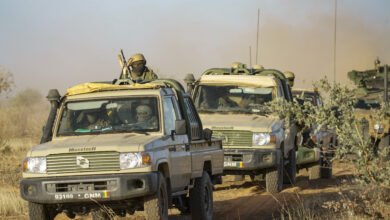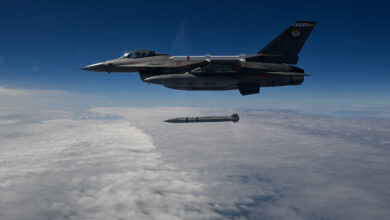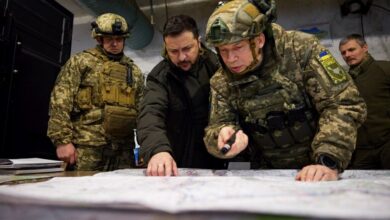The U.S. State Department on Thursday, November 7 placed Mali-born radical preacher Amadou Kouffa on its Specially Designated Global Terrorist list, putting a new focus on the militant blamed for multiple attacks in the Sahel.
A member of the Fulani herding community, Kouffa has built a following among the young with fiery sermons urging a hardline form of Islam that have been disseminated widely by mobile app WhatsApp.
Kouffa is a senior figure in the variously spelled Jama’at Nusrat al-Islam wal-Muslimin – the Group to Support Islam and Muslims – better known as JNIM.
Led by Iyad Ag Ghaly, JNIM was formed in March 2017 from a merger of several smaller militant groups including the Sahara branch of al-Qaeda in the Islamic Maghreb, Al-Mourabitoun and Ansar Dine.
Kouffa leads Katiba Macina, an Ansar Dine affiliate active in central Mali and western Burkina Faso.
JNIM’s leadership has pledged allegiance to al-Qaeda leader Ayman al-Zawahiri.
The majority of insurgent attacks in Africa’s Sahel region are attributed to JNIM, and the State Department said the alliance, itself designated as a terrorist group last year, is to blame for the deaths of more than 500 civilians.
JNIM regularly reinforces its opposition to “occupier” France, and in September warned the governments of the G5 Sahel group of states that attacks against their forces would continue while they support the France-led Operation Barkhane counter-terrorism mission in the Sahel.
That threat was underscored in late September, when at least 40 Malian soldiers were killed in simultaneous raids claimed by JNIM in Boulkessi and Mondoro, near central Mali’s border with Burkina Faso, one of the deadliest attacks against Mali’s military in recent insurgent violence. The troops in Boulkessi were from a battalion under G5 Sahel Joint Force command.
The U.S. Treasury Department listing says Amadou Kouffa was born in 1958, and is also known as Hamadou Kouffa, Hamadoun Kouffa and Amadou Barry.
“Today’s designation seeks to deny Kouffa the resources to plan and carry out terrorist attacks,” the State Department said.
The designation – which makes any dealings with Kouffa a crime in the United States – came two days after France said it had killed another senior JNIM figure, Ali Maychou.
Ali Maychou co-founded JNIM alongside Asar Dine leader Iyad Ag Ghaly, AQIM’s Hassan Al Ansari, Al-Mourabitoun’s Yahya Abu al Hammam, and Amadou Kouffa.
Noting that he had claimed responsibility for a number of JNIM attacks and “had a role in operational activities of JNIM,” the U.S. designated Ali Maychou as a global terrorist list in July, alongside Bah Ag Moussa.
In March, the Malian Armed Forces blamed Moussa for a raid at an army camp in the Mopti region that killed at least 23 soldiers. While JNIM later said it was behind the assault, it denied “the commander Abah Moussa” carried out the attack, saying it was led by Amadou Kouffa. The State Department release apparently confirmed Kouffa’s involvement, saying he “led an attack against the Malian army in which more than 20 soldiers were killed.”
Last November, officials including France’s Armed Forces Minister Florence Parly claimed that Kouffa was killed by French forces, only for him to appear in a video in February refuting the claims.
But of the five who appeared in the video announcing JNIM’s founding it seems that only Amadou Kouffa and Iyad Ag Ghaly remain: al-Hammam was killed in February and JNIM has confirmed that Hasan al Ansari was killed in 2018.
International operations battle Sahel insurgency
In 2012 a Tuareg separatist uprising against the state was exploited by Islamist extremists linked to al-Qaeda who took key cities in Mali’s desert north.
France began its Operation Serval military intervention in its former colony early the next year, driving the jihadists from the towns, and the MINUSMA peacekeeping force was then established.
But the militant groups have morphed into more nimble formations operating in rural areas, and the insurgency has gradually spread to central and southern regions of Mali and across the borders into neighboring Burkina Faso and Niger. Large swathes of Mali remain outside government control, and inter-ethnic bloodshed is a regular occurrence.
The Serval mission evolved in August 2014 into Operation Barkhane, which has a mandate for counter-terrorism missions across the Sahel. Roughly 4,500 French troops are deployed in the region, including around 2,700 soldiers in Mali. Force protection personnel from Estonia and Chinook helicopters from the United Kingdom currently support Barkhane, and Denmark is to send two helicopters and up to 70 troops in December.
Operation Barkhane focuses activity in insurgent-hit Mali, Niger and Burkina Faso, and troops work alongside other international operations, including the roughly 14,000-strong MINUSMA U.N. stabilization mission in Mali, and the G5 Sahel Joint Force, the long-planned 4,500-strong joint counter-terrorism force comprising troops from Burkina Faso, Chad, Mali, Niger and Mauritania.
France expects new international task force Takuba to deploy in Mali ‘by 2020’
With reporting from AFP












